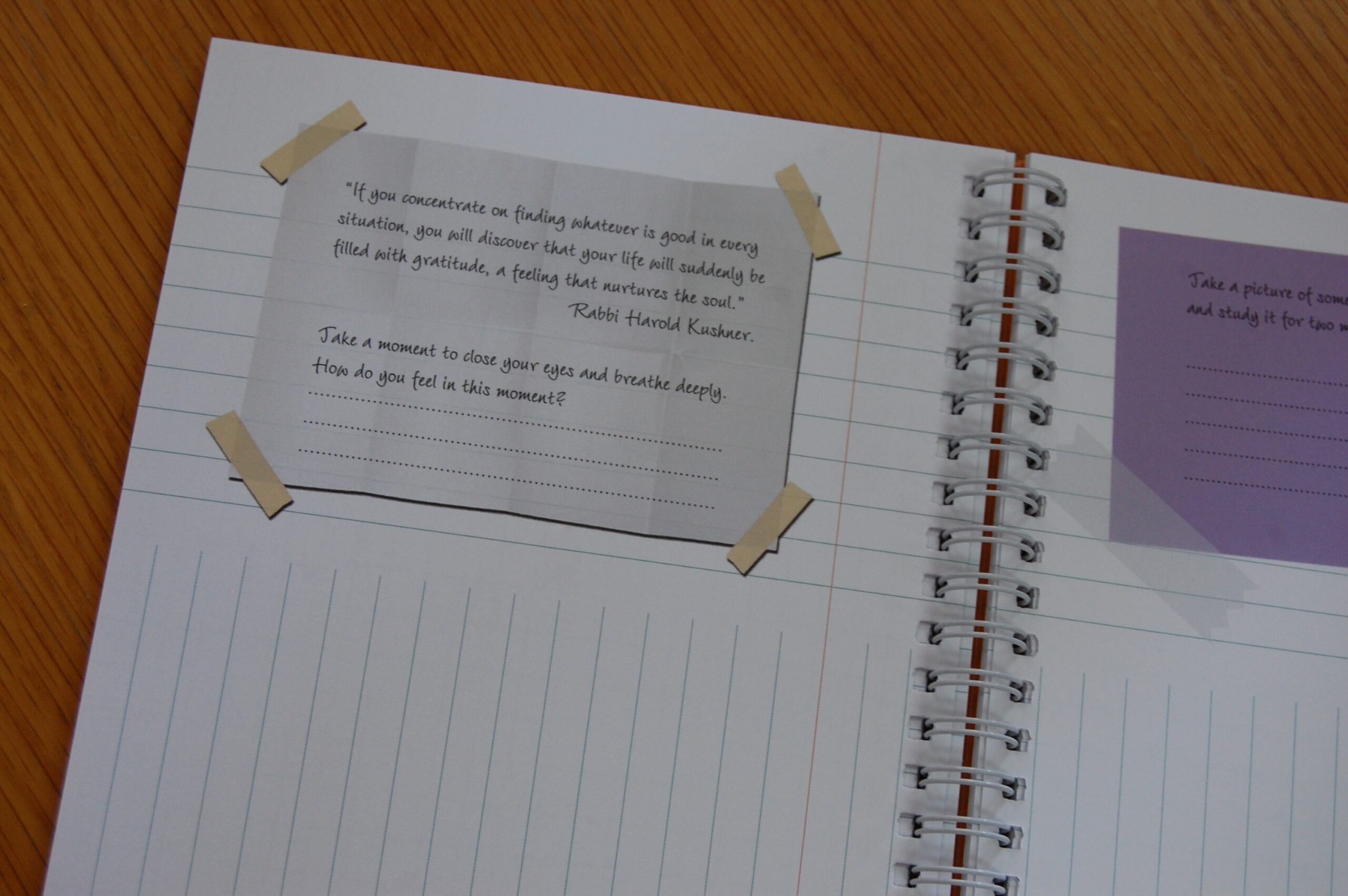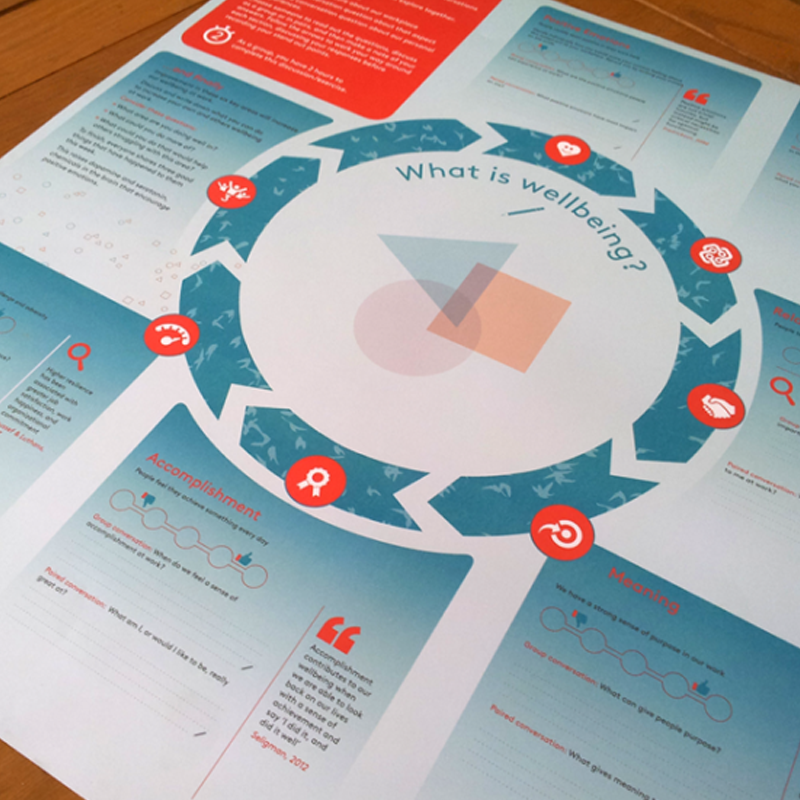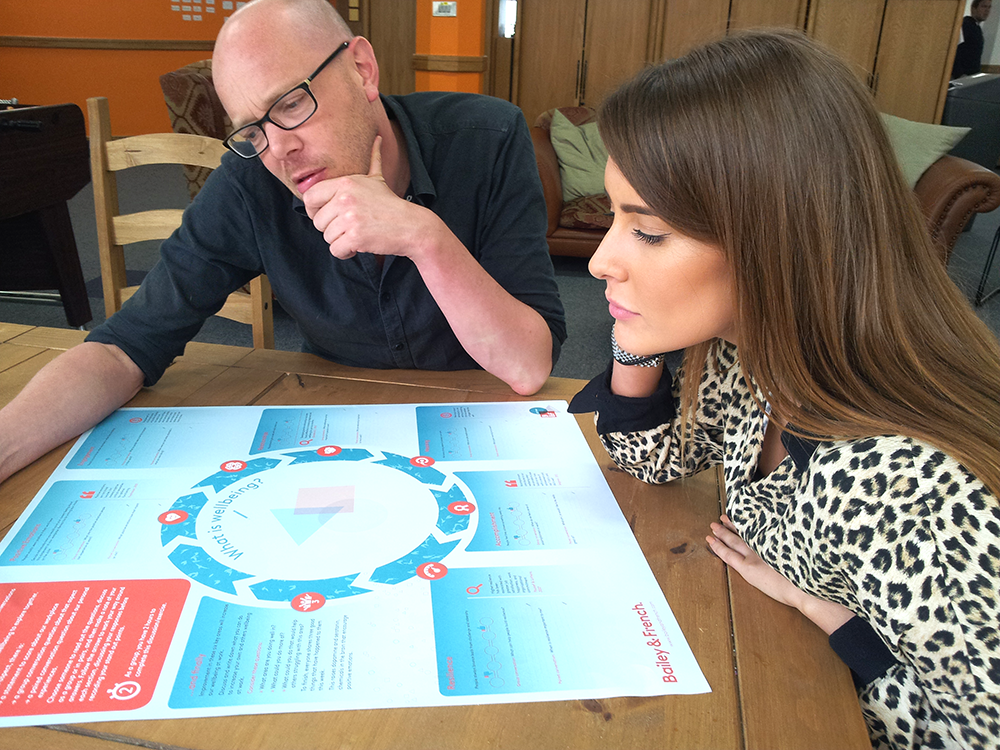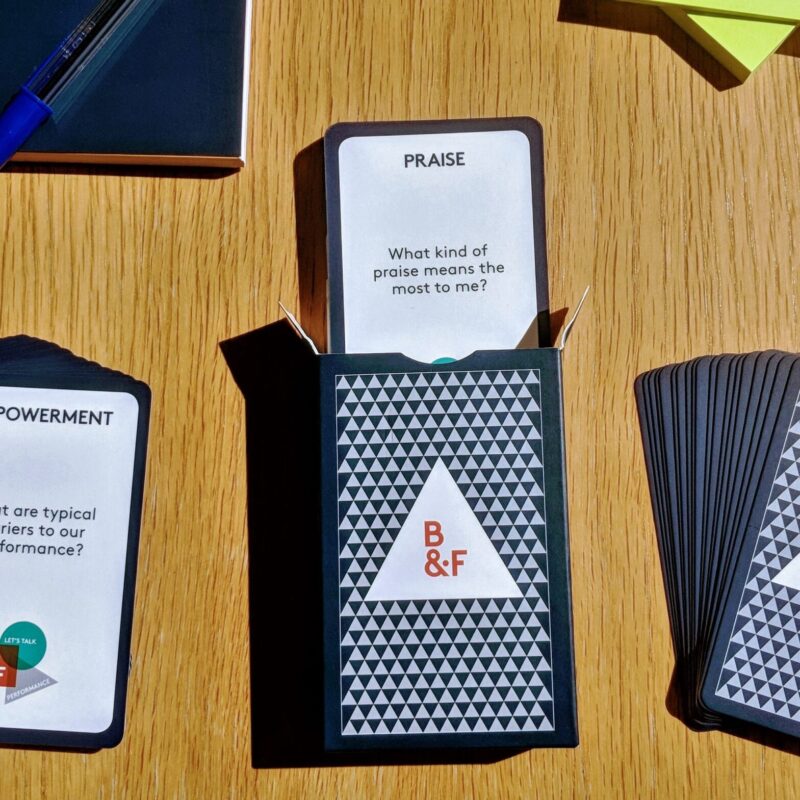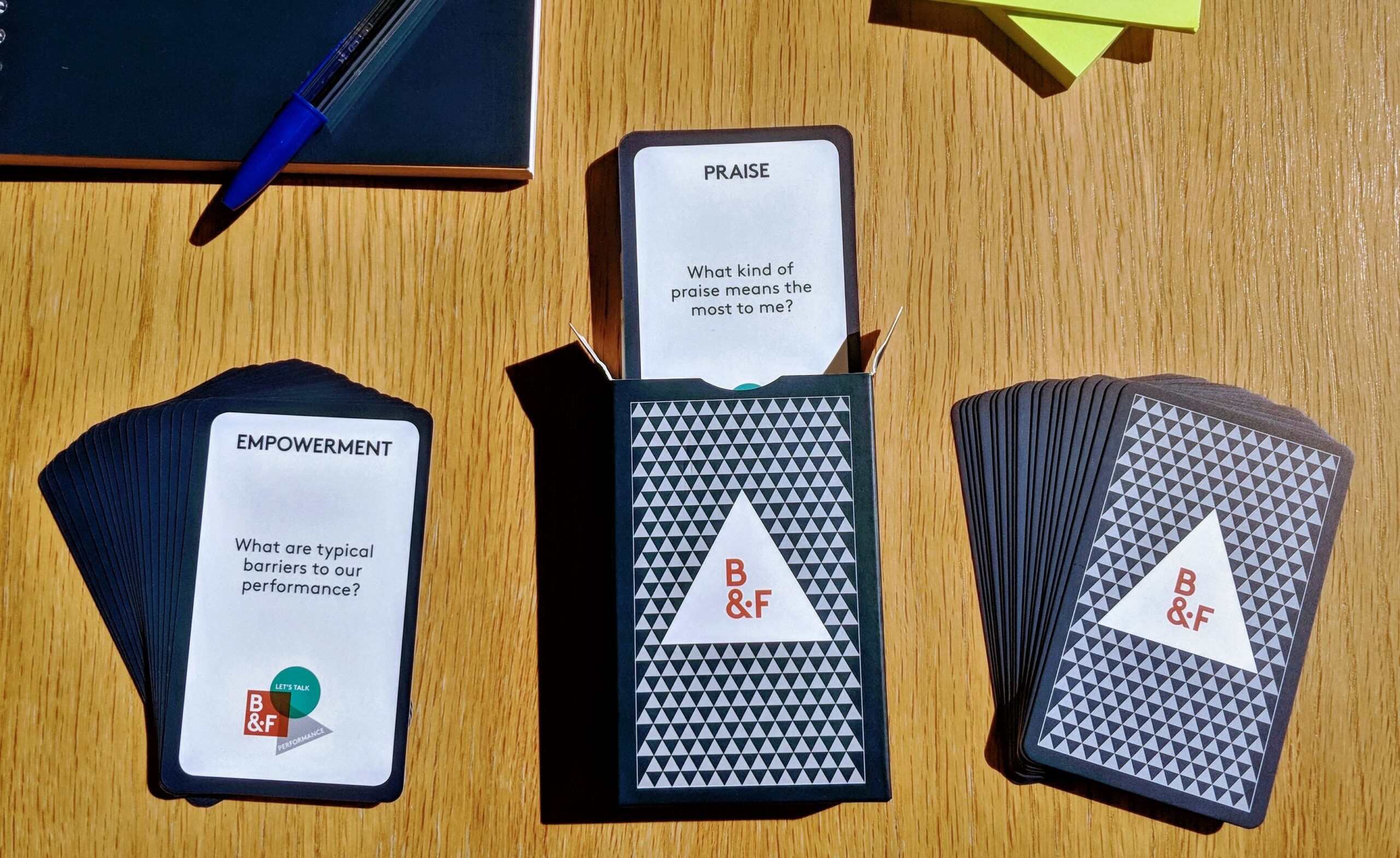Let’s Talk Wellbeing Cards
£30.00
Having great wellbeing conversations is a skill that can be learned. Our ‘Let’s Talk Wellbeing’ cards are easy-to-use for starting meaningful conversations about the things that positively impact psychological wellbeing and making sure we all keep our wellbeing front of mind.
Let’s Talk Wellbeing cards are a fully flexible discussion tool that can be used in a variety of different scenarios to empower people to have positive conversations about wellbeing. Grounded in Dr. Martin Seligman’s PERMA model of Psychological Wellbeing¹, which focuses on flourishing and thriving, these cards give quick activities, action points or questions that can be used in a wide range of conversation activities and events such as meetings, 121’s, huddles or lunch’n’learns.
Each card has one discussion question to use in teams, pairs and individually. The cards are themed on the five pillars of psychological wellbeing: Positive emotions, Engagement, Relationships, Meaning, and Accomplishment.
A great tool for managers, coaches, and L&D professionals.
¹Seligman, Martin (2011)
In stock
You may also like…
-

Wellbeing Notebook
£15.00Add to cartWellbeing Notebook
£15.00A common misconception is that wellbeing is just about physical health and avoiding mental illness. This notebook shows that there’s much more to wellbeing and more we can do to support it, with far reaching possibilities in the workplace and beyond. In a world that is increasingly complex and uncertain, our notebooks empower people to be able to face life’s challenges positively.
The notebook has fun and thought-provoking reflective points and activities throughout, themed by 5 pillars of wellbeing in the PERMA model¹. By bringing our conscious awareness to these key elements we are prompted to consider how our work and wellbeing connect and identify opportunities to increase our general wellbeing and resilience in and out of work.
The notebook helps us reflect on how we can take action to maintain and improve our wellbeing on a daily basis and provides further tools and ideas to positive impact wellbeing. It’s also an excellent resource for Managers with helpful prompts they can use in huddles and team meetings to keep individual and team wellbeing front of mind.
¹Seligman, Martin (2011)
In stock
Quick View -
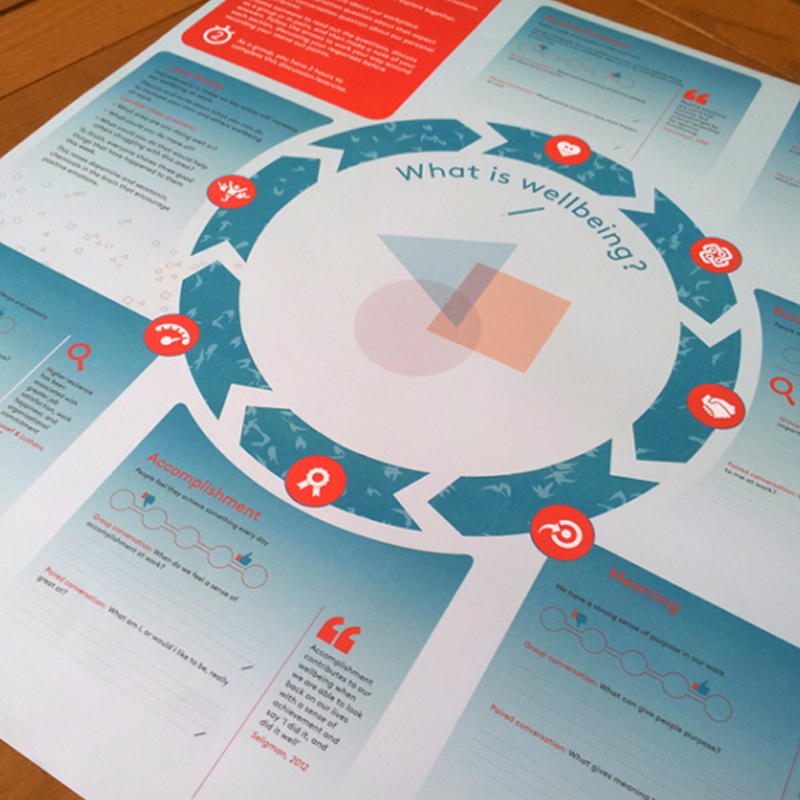
Wellbeing Conversation Mat
£50.00Add to cartWellbeing Conversation Mat
£50.00Wellbeing is talked about in organisations a lot, but there is often little on offer beyond physical health programmes and support for those with mental illness. Based on the latest research into wellbeing, this mat helps us explore the five pillars of the ‘PERMA’ wellbeing model¹, building teams that are more aware of their own and others’ wellbeing, and what can affect it.
This team discussion tool focuses on building wellbeing at work. Teams use the tool to explore the PERMA model of wellbeing focusing on what helps us thrive and flourish at work. It gives an immediate pulse check diagnosis of the five pillars to support further action. These are the ideal tools for small and large-scale team days, providing a simple and fun platform for engaging with individuals and teams. Easy to self-facilitate, each mat can be used by groups of up to 12 and multiple mats can be used in order to cover larger teams, groups or whole organisations. Each mat provides frame-worked discussion topics, encouraging each person to contribute, tackling difficult subjects in a non-judgemental way and empowering people to take action.
Purchasing the Let’s Talk Wellbeing Conversation Mat you will also receive a User Guide and FAQ’s, designed to give more information about the background and research behind the Dialogue Mat, how to prepare and deliver a session, the impact you should expect to see, and how to use it effectively within a team/organisation.
Good for?
– Increase in Emotional Intelligence: People increase their self and other awareness, allowing them to better connect to themselves and others.
– Increased Accountability: Identifying that positive wellbeing is something that everyone can manage themselves naturally increases accountability.
– Uniting People: The mat creates a united feel amongst participants, this is a result of the shared self-discovery.
– Improved psychological wellbeing: There is an immediate rise in positive wellbeing and this can be sustained through application of the core components of PERMA.
– Pulse-check diagnosis: Offering a true pulse-check of how people feel, as well what key areas of focus on for teams or the organisation.
¹Seligman, Martin (2011).
In stock
Quick View




